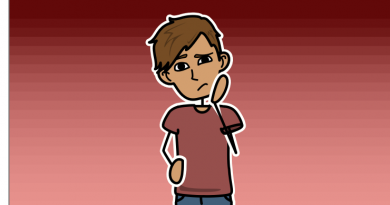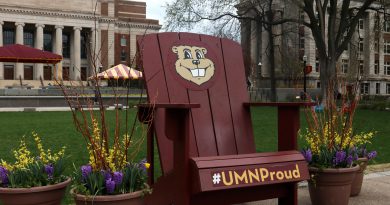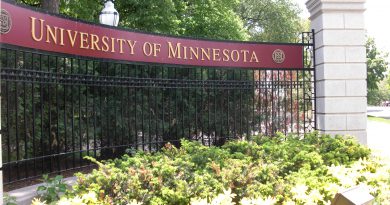Voices from the survey: Rural students say they perceive an urban-rural stereotype and are reluctant to speak in classrooms

Photo Credit: Samantha Freeman
By Ariana Wilson, Samantha Freeman and Kayla Song
When AccessU: Beyond the Cities asked students for comments in a survey about rural students’ experience on the Twin Cities campus, more than 200 people weighed in anonymously expressing notably similar views along two lines.
Many metro-area students either acknowledged or endorsed stereotypes of Greater Minnesota students as conservative simply because of their hometown identities. In turn, rural students wrote they are aware of those stereotypes from their metro-area peers, and tend to clam up about their geographical identities and their views, especially in the classroom.
The anonymous comments were powerful, revealing a subtle “urban-rural” divide grounded in misplaced stereotypes. These misconceptions don’t take into account the difficulties that experts say many rural students face in making their way into higher education and their success once they do. AccessU reached out for on-the-record comments to those who gave us permission to do so from the survey. Some of those interviewed live outside of Minnesota because our survey initially included out-of-state and international students.
Those interviewed told the same story.
Mary Owelke, a student from Stewartville, Minnesota, said she tries her best to conceal that she’s from a rural area for fear she’ll be stereotyped. “I wholeheartedly believe people make assumptions once they find out I’m from a rural area. And if I express an opinion, then stereotypes get put on me that don’t necessarily associate with me,” she said.
When people discover she is on the executive board of the shotgun team on campus, she said, “they just make assumptions that I’m some hick and I have very radical political views and that’s not always the case.”
Jeffery McHugh, who came to the Twin Cities campus from the suburbs of Chicago, admits he can fall prey to the assumption that rural equals conservative.
“If I meet someone who’s super conservative, I might be like, ‘Oh, are they from a small town?’” McHugh said. “I definitely just have expectations about the type, because I think urban, suburban and rural are all their own category.”
K.J. Lannon, a student who grew up on a farm outside of Duluth, Minnesota, said she has always been more attracted to a big-city feel. Because of this, she sees herself as sensitive to both sides of the urban-rural question.
She said that sometimes she catches herself making the quick association of “conservative” meaning “racist” or “xenophobic.” Immediately, she said, she reminds herself she can’t make such a judgment about someone based on a political view.
“But nobody does that,” Lannon said. “It’s all these snap judgments, all the time.”
In the survey comments, some metro-area students accepted the idea that rural students might be a marginalized group, but others objected strongly to that idea—one student equating rural students with “the oppressors.”
Yet rural students face true challenges, said College of Liberal Arts adviser Keelin Yenny, whose recent Ph.D dissertation explored rural students’ sense of belonging at urban universities. Year over year data show “fairly consistently,” she said, that rural students come to universities less prepared because of resource deficits in their hometown schools and are more likely than suburban peers—and, in some cases, urban ones—to delay enrollment into higher education, “stop out” or not finish degrees.
Although some of these realities are accounted for by rural students’ status as first-generation, Pell-eligible or working class, she said, geography or “rurality” is indeed a factor beyond those intersecting identities.
“Their identity coming from a rural background and the impact of place and where they grew up—that alone is really important and really fascinating, and the data is suggesting that when you look at their geographic background, they aren’t having the same benchmarks of success that urban and suburban peers are having,” Yenny said.
Her research found that many rural students also suffer from “imposter syndrome,” a feeling that they do not belong at the university despite their intelligence and abilities. When they’re admitted, they often feel overwhelmed by trying to navigate the big-city environment; despite many students around them, they feel more alone than ever.
Yet because rural students are overwhelmingly white, their struggles are often dismissed by those who assert—as many metro-area students did in the survey comments—that other marginalized groups involving race or sexual or gender identity are simply more important, she said.
“I don’t think it has to be an either/or. I think you can acknowledge rural students as a group that there should be more research about, and support for, without excluding the other folks,” Yenny said.
In fact, seeking diversity is much of what motivates rural students to come to a large, urban campus—something she found in her dissertation research, Yenny said. “A lot of the students talked about how they wanted to engage with diversity of thought, and that was something they were really excited for. When they got here, they weren’t sure how to do that, and didn’t have a lot of practice.” she said.
Yet for students at the university, finding a way to engage with that open discourse is sometimes challenging.
Violet Ohnstad, a student from rural Grantsburg, Wisconsin, said she wishes this campus were a place of open discourse, but she doesn’t talk politics because she’s afraid of being hated.
“I feel like there’s a bias of who can talk at our campus or what media gets reported or what gets talked about,” Ohnstad said. “It’s definitely OK to make jokes against conservatives, but you can never make a joke against a liberal.”
Daniel Smith, a student from North Liberty, Iowa, said he understands this struggle that many conservative and rural students experience. Smith said he identifies as politically liberal, and although he does not like to discuss politics, he said he feels the most comfortable speaking up in the classroom because he knows he is going to be received positively, which is why he speaks up.
Smith recognizes this is not the case for many students, and that conservative and moderate students are often in the middle of left-leaning discussions in class. “They’re going to have to fight that fight. I think they just shut down and don’t contribute,” Smith said.
The implications of this type of self-censorship cause people to overestimate how much of the student body really is liberal, which Smith said creates “camouflage conservatives” in the classroom.
“It’s a shame, because I think they don’t feel safe,” he said.


